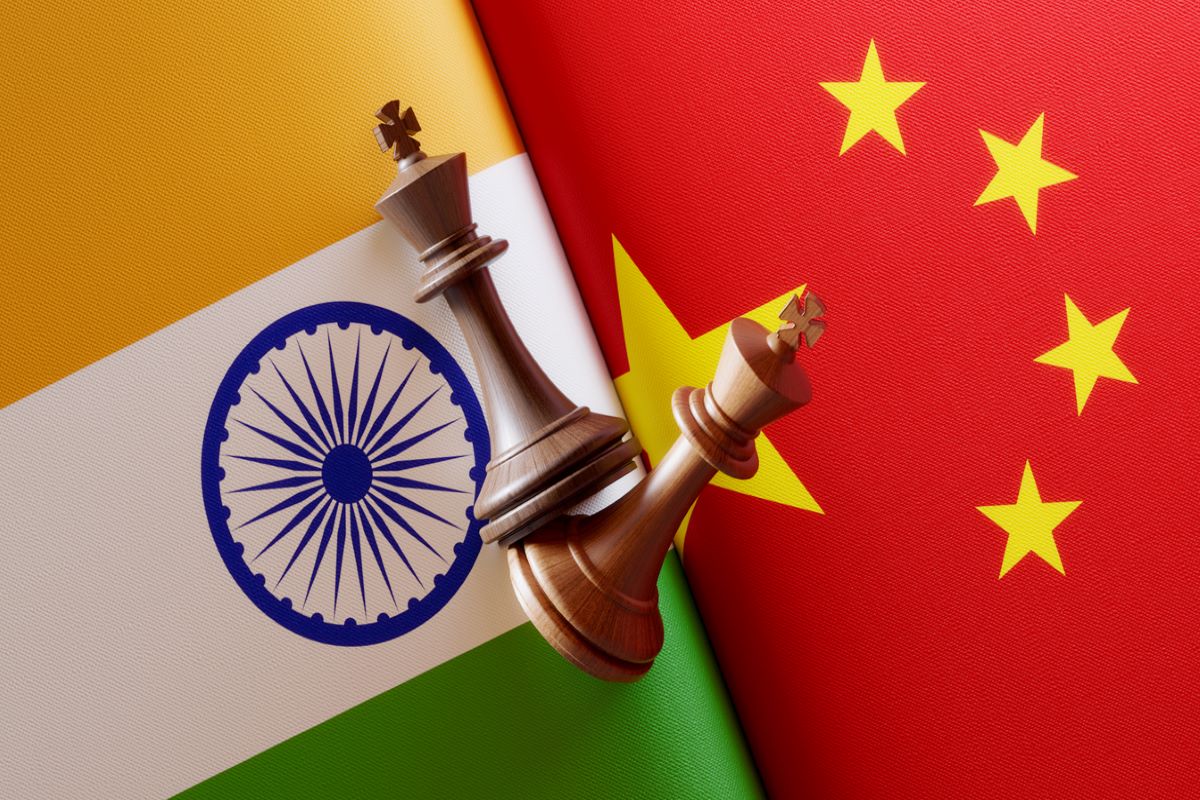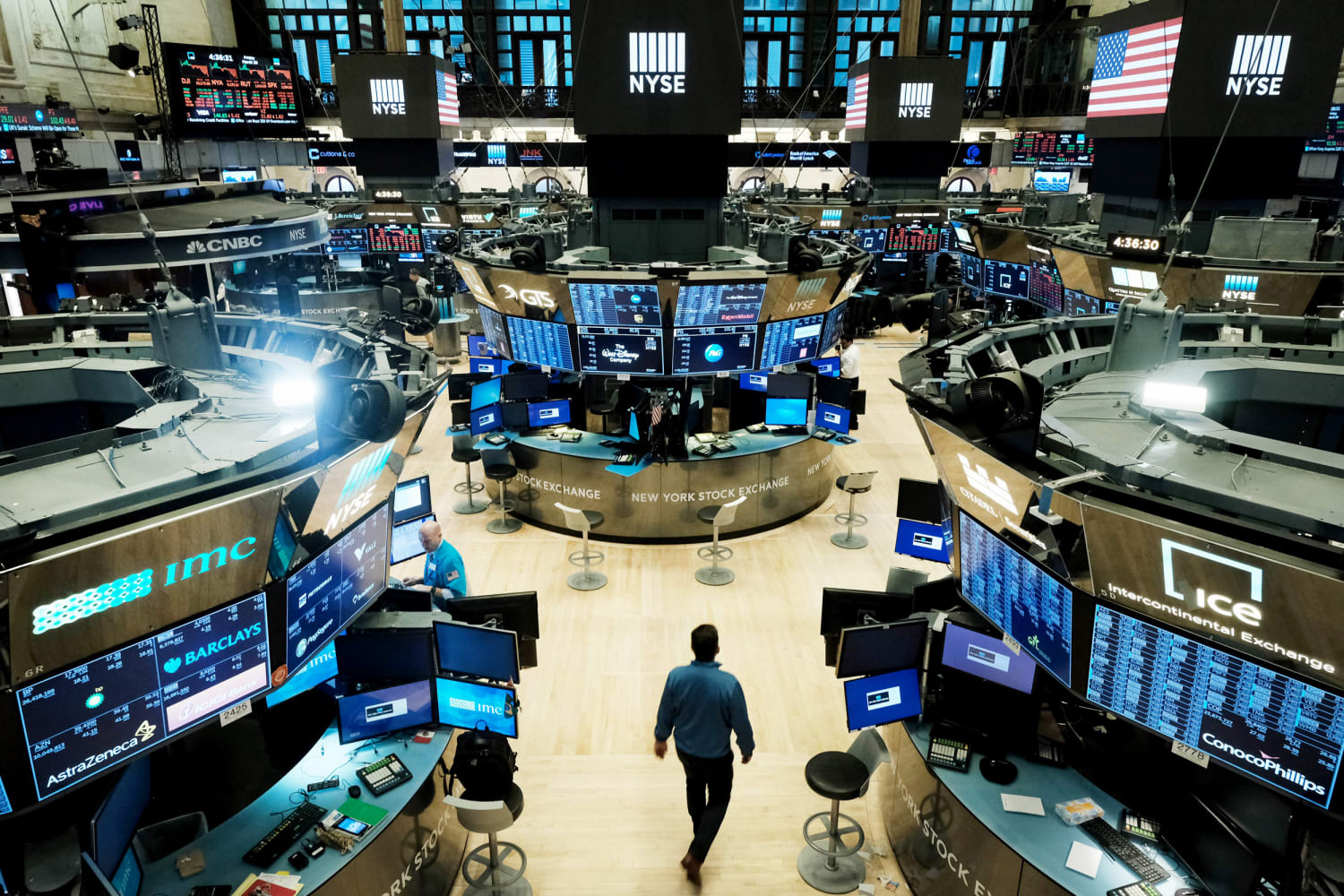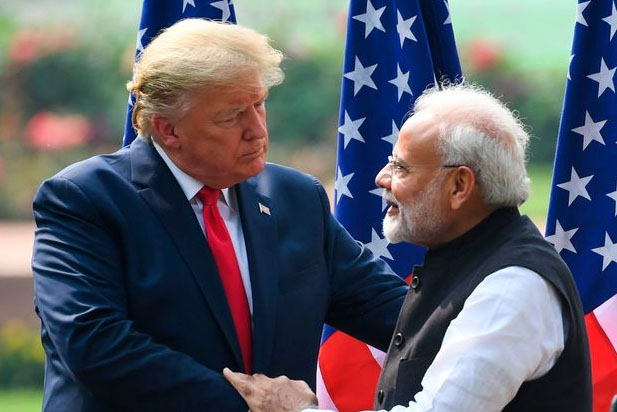The Tug Of War, Can India Rely on U.S. Commitment Against China?
As the rivalry between India and China deepens, it has pushed New Delhi to reevaluate its strategic approach and hence align more closely with the United States. However, as this partnership evolves, a critical concern has also found ground, can the United States maintain a consistent stance against China in the face of mounting pressure and shifting priorities? This question gains significance as India grapples with its security implications and balances the complexities of its evolving ties with both superpowers.

India’s relationship with China is a tough one. Through the years, it has descended into mutual resentment, thus, prompting India to abandon its former strategic ambiguity and adopt a more overtly confrontational posture.
Moreover, India’s growing alignment with the United States raises pertinent questions about America’s commitment to countering China’s influence; as India continues to slowly align with the United States, the same time America seeks to intensify its partnership with India as a democratic counterbalance to China, hence the one question that emerges, can Washington stay the course on Beijing?
China’s Growing Threat
This is particularly crucial for India, as it faces territorial tensions with China in the Himalayas and seeks assurance that its “closest strategic partner” remains steadfast in its security strategy.
Debates within India center on the extent of China’s infiltration into its media and political ecosystem, raising concerns about foreign influence.
The debate has flared after a report in New York Times linked an Indian media outlet, Newsclick, to a network of global media and think tanks that spread the Chinese Communist Party’s “talking points” and receive funding from Neville Roy Singham, a far-left American millionaire who enjoys close ties with the Chinese government.
The debate has even reached the Parliament, in which the ruling BJP has targeted the Congress and the CPM for their alleged “dirty nexus” with China.
India’s Response
While India strengthens its strategic ties with the U.S. and participates in joint naval exercises, its efforts to counter China’s influence extend to banning apps, limiting investments, and exposing malicious campaigns.
India’s foreign minister is calling out China as the only P5 member to oppose India’s entry into the United Nations Security Council, and India’s former army chief reckons that China’s covert role cannot be ruled out behind the violence in Manipur.
India is banning hundreds of Chinese apps, restricting Chinese investments, cracking down on Chinese businesses and seeking to expose CCP’s malicious influence campaigns in domestic politics and the economy.

United States Stand
Western media has characterized this as a potential détente despite the perceptible tensions, although the reality remains far from harmonious.
The structural concerns that led the Trump administration to view China as a geopolitical rival still continue, and the Biden administration has persisted and even expanded upon critical elements of its predecessor’s approach.
However, U.S. involvement in conflicts like Ukraine has led to a realization that resources are stretched thin and as counter, the Biden administration appears to be adopting a “crisis management” strategy to engage China, seeking communication channels to prevent further escalation.
Nevertheless, U.S. signalling remains inconsistent. While seeking to limit ties’ deterioration, officials like treasury secretary Janet Yellen emphasize the importance of economic relations. China’s aggressive posturing further complicates matters, as it releases provocative content such as a documentary on attacking Taiwan. This creates uncertainty about the U.S.’s intentions in the face of such challenges.
Efforts to establish communication channels between the U.S. and China are in progress, with the formation of working groups to address regional and maritime issues. Despite this, the policy’s effectiveness and commitment remain ambiguous.
Recent high-level meetings between U.S. and Chinese officials have demonstrated a shift in approach, with multiple engagements and a mix of containment and engagement strategies.

The Wall Street, An Important Element
The role of Wall Street adds a layer of complexity as financial interests intertwine the two economies, leading to questions about America’s genuine commitment to containing China.
While the U.S. maintains an engagement strategy, Wall Street’s ties with China raise concerns about prioritizing financial interests over broader geopolitical goals.
The fact is that the interconnections between the Chinese and American economies are deeply entrenched and highly valuable, often spurring the United States to prioritize its financial sector’s interests over even its own sovereign concerns.
This strong economic interdependence makes it challenging for the U.S. to commit genuinely to a strategy of decoupling or risk reduction. Notably, Wall Street giants like BlackRock wield significant influence within mainstream American discussions, resulting in their actions often escaping close scrutiny.
A report from The New York Times in 2021, spotlighted a curious dissonance between Wall Street’s optimistic stance on China and the country’s unstable economic environment.While American businesses were becoming increasingly wary due to rising geopolitical tensions, Wall Street leaders appeared to be moving in the opposite direction.
As detailed in the October 2021 NYT report, during a period of significant market turbulence in late July, Fang Xinghai, the deputy chairman of China’s securities regulator, convened meetings with executives from BlackRock, Goldman Sachs, and other firms.
This move aimed to alleviate investor apprehension stemming from Beijing’s regulatory crackdowns. Around 20 days later, regulators approved BlackRock’s application to offer mutual funds within China.
When considering the Biden administration’s robust engagement approach toward China, combined with the substantial interests of Wall Street, which are intertwined with China’s economic prospects amid sluggish growth domestically and globally, uncertainties arise concerning the U.S.’s ability to sustain a containment strategy against Beijing.
This strategy’s outcome becomes even more uncertain given the potential inevitability of a confrontation over the future of Taiwan, adding another layer of complexity to the situation.
Amid this intricate geopolitical landscape, Masahiro Matsumara, writing for Nikkei Asia, suggests that the ongoing conflict in Ukraine, with its substantial drain on U.S. military and financial resources, reflects a significant misalignment of priorities.

He points out that it could take several years for the U.S. to rebuild the necessary munitions stockpile and logistical capabilities required for a potential major regional conflict with China over Taiwan. This circumstance sheds light on why the Biden administration might be inclined to pursue a detente with China, recognizing the immediate challenges posed by various fronts of conflict.
Hence, the interplay between economic dependencies, Wall Street interests, strategic engagement, and shifting priorities has created a complex environment that raises questions about the U.S.’s ability to maintain a consistent containment strategy towards China. The evolving global landscape demands careful consideration and calculated actions as the U.S. navigates its priorities and commitments, including potential conflicts and detente.
The Crux
In the context of these intricate dynamics, the question of whether America can be fully trusted as a reliable partner against China persists. India stands at a crossroads, considering the implications of its strategic alignment with the United States.
The evolving situation demands a cautious approach. India must assess whether the U.S.’s shifting priorities and financial ties could impact its commitment to a comprehensive containment strategy against China.
While India’s concerns are valid, the future remains uncertain. The Biden administration’s approach to China blends elements of containment and engagement, creating a delicate balance that could significantly influence global dynamics.
As India manoeuvres its own foreign policy, it must recognize the fluidity of the situation and carefully weigh its strategic decisions.
The Last Bit, As India seeks to navigate the turbulent India-China relationship, the question of whether the U.S. can be trusted to stand against China remains paramount.
The U.S.’s commitment to a containment strategy involves complex geopolitical and financial interests, and India must cautiously assess this evolving dynamic as it determines how much reliance can be placed on its strategic partner in the face of a growing China.





